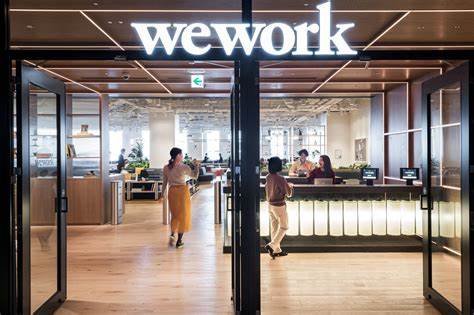Learning from WeWork's Failed Attempt to Redefine Office Space
WeWork, once touted as a revolutionary force in the world of commercial real estate, filed bankruptcy on November 6th, 2023. Founded in 2010 by Adam Neumann and Miguel McKelvey, the company promised to transform the way we work, offering flexible, shared office spaces designed for collaboration, creativity, and community.
However, WeWork's meteoric rise and subsequent fall provide a cautionary tale of how a bold vision can crumble when executed poorly. While bold ideas are often the key to business success, WeWork’s shortcomings can inform us on how to bring good ideas to fruition.
WeWork's initial vision was enticing. They aimed to disrupt the traditional office space model by creating adaptable, dynamic, and community-centric work environments. These spaces were designed to cater to a diverse clientele, from startups and freelancers to established corporations. The company's promise was rooted in the belief that traditional office spaces were outdated and uninspiring, lacking the sense of community and collaboration that modern workers craved.
These visions led to WeWork’s peak valuation in private markets at $47 billion in early 2019, but the grand vision quickly unraveled, and several factors contributed to its failure to shift the paradigm of office space.
One of the primary reasons for WeWork's failure was its unbridled and often reckless expansion strategy. Funded by unicorn investors interested only in hypergrowth, the company rapidly expanded its real estate footprint, taking on immense financial commitments without a sustainable revenue stream. In 2018 alone, Wework spent $2bn on property and equipment. Despite receiving $6.7bn of investments and another $4.4bn in stages from Softbank, WeWork ended the year with less than $1.75bn of cash. In its bankruptcy filing, WeWork listed $18.7 million in debts and $15.1 million in assets as of June 30.
This strategy was not only unsustainable by putting immense pressure on the company's finances, it has also alarmed the markets on how to evaluate start-ups without the profits. Even with revolutionary ideas and plenty of investment, unsustainable expansion can cause a company to quickly collapse.
WeWork's corporate governance and management issues further exacerbated its problems. The company's charismatic co-founder, Adam Neumann, hoped to establish WeWork as a lifestyle brand, offering employees free yoga classes, meditation rooms, and even beer on tap. WeWork’s profit generation could not support Neumann’s cash-burning vision, and the attempt to change work culture amounted instead into an atmosphere of excess, ultimately damaging WeWork's reputation.
WeWork's overvaluation and eroded credibility were significant factors in its downfall. Lavish spending by Neumann, proposed "We" trademark, questionable sale of assets to Neumann himself all raised red flags for investors and stakeholders.
The company was once valued at $47 billion privately but faced a harsh reality check when it attempted to go public in August 2019. The WeWork IPO was postponed due to harsh scrutiny by Wall Street investors of its financials, leadership, and governance issues. This exposed the discrepancy between the company's perceived value and its actual financial health.
WeWork's spectacular rise and fall serve as a cautionary tale in the world of startups and entrepreneurship. The company's failure to shift the paradigm of office space was not due to a lack of potential in its original vision but rather the result of poor execution, mismanagement, and an unsustainable growth strategy.
While WeWork may have stumbled in its attempt to revolutionize the way we work, it has left an enduring impact on the real estate industry. Its legacy can be seen in the continued growth of flexible office space providers, the adaptation of traditional office spaces to cater to the changing needs of the workforce, and the increased focus on creating collaborative, community-driven work environments.
WeWork's story is a reminder that even the most ambitious ideas need a solid foundation of responsible management, sustainable growth, and a strong value proposition to succeed in shifting paradigms. In the end, it's not just about having a vision, but also about the ability to execute it effectively and adapt to changing circumstances.

